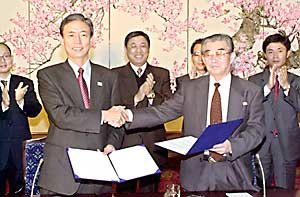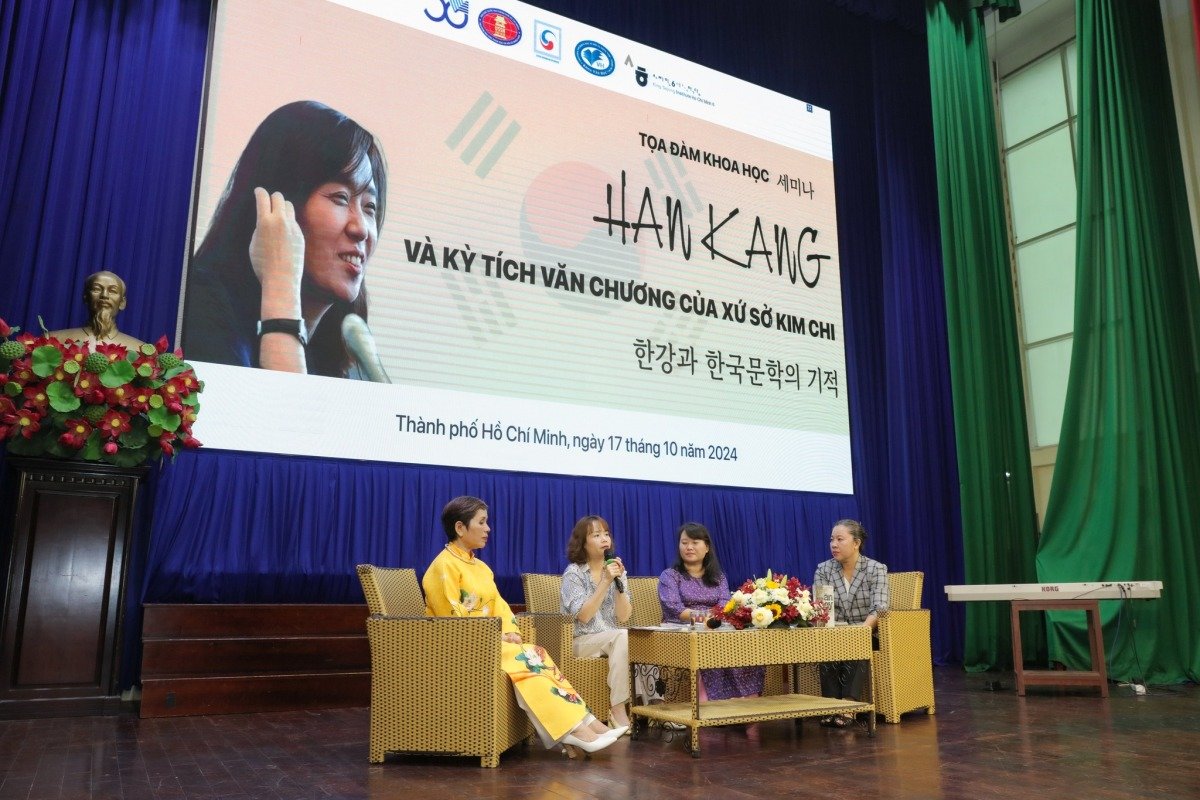Provisional pact on inter-Korean economic cooperation
Provisional pact on inter-Korean economic cooperation
Posted November. 12, 2000 20:17,

South and North Korea have prepared an institutional device to accelerate inter-Korean economic cooperation.
The two Koreas signed a provisional agreement on economic cooperation that includes four points -- investment guarantees, double taxation prevention, liquidation settlements and procedures for the solution of commercial disputes.
The signing took place on the last day of the second round of inter-Korean working-level talks on economic cooperation held in Pyongyang, Saturday.
The two sides agreed to sign the agreement formally at their minister-level talks and to seek to implement it during the first half of next year. It is the first time that the two Koreas have formulated such a concrete frame to boost inter-Korean economic cooperation.
Contents of four-point agreement:
The agreement focuses on guaranteeing that businesspeople from the two sides will conduct business freely in the other region and will not suffer any disadvantages stemming from such business activities.
The accord on investment guarantees ensures that the two Koreas grant most-favored-nation status to each other and provides for the free remittance of investment-related funds. It also bans, in principle, the expropriation or nationalization of each other¡¯s investments for public purposes.
The accord on the prevention of double taxation adopts the income exemption formula under which a businessperson who pays taxes in one of the two sides will be exempted from taxes in the other. For income from dividends and investments such as royalties, taxes of less then 10 percent will be levied in the place where the income is earned according to international practices, while differences will be paid in the home country.
Entertainers or athletes who earn money in one side under agreements between authorities or with prior approval need not pay taxes in the other side.
The accord on the liquidation settlement enables both South and North Korean companies to conduct transactions through banks designated by the South and the North, not through a third country, thus helping them save additional expenses and time. This means that direct exchange settlements and remittances between the two will be possible. At the same time, the companies can pay with a third ¡°special¡± currency whose rate will be decided on through an agreement between the two sides, taking into account the U.S. dollar.
The accord on the solution of commercial disputes dictates in principle that any disputes shall be solved by the parties concerned. Otherwise, grievances shall be addressed by the South-North Commercial Dispute Arbitration Committee.
When will agreement go into effect?:
The signing of the provisional agreement does not mean that it will go into effect immediately. It should be formally signed in the ministerial-level talks. If necessary, the agreement may be changed into the form of a treaty. If it maintains the form of an agreement, related domestic laws should be revised. If it turns into a treaty, it should be ratified by the National Assembly. It is expected to go into effect sometime next year.
Kwon Soon-Hwal shkwon@donga.com
Headline News
- Presidential Office signals possible offensive weapons aid to Ukraine
- N. Korea reportedly prepares military balloon attack with Russia
- Medical associations join bipartisan talks on expanding medical school quotas
- Former world No. 1 Ko Jin-young returns to LPGA
- Kakao unveils AI service ‘Kanana’ at 'if Kakao AI 2024'







